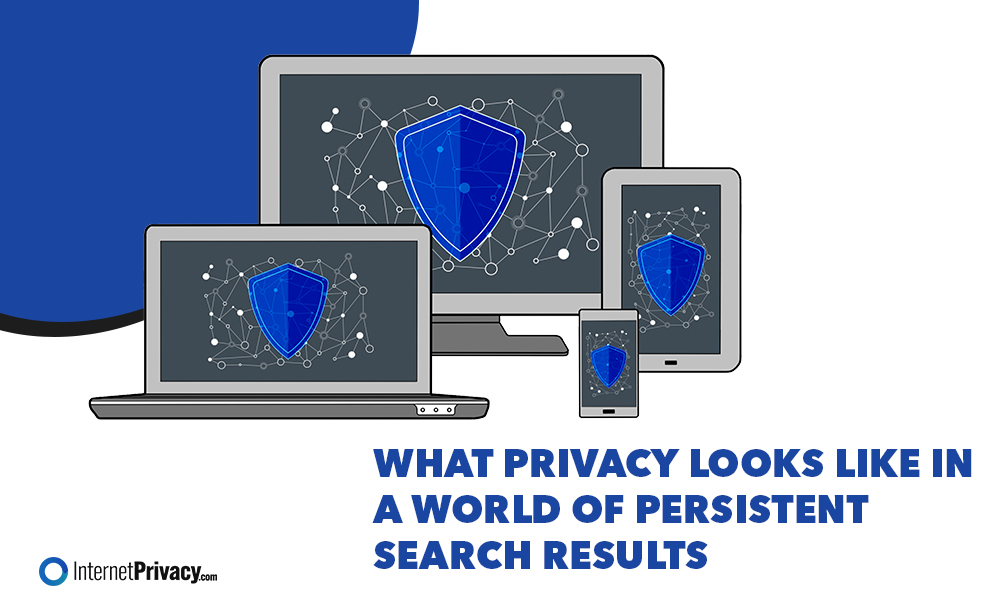What Privacy Looks Like in a World of Persistent Search Results

Most people assume their old searches disappear over time. They don’t. A search you made five years ago—about debt relief, a health concern, or a legal issue—may still influence what you see online today. Search engines store more than the query itself. They store patterns, timing, devices, locations, and the context surrounding your searches. Over time, this creates a long-term record of your interests, habits, and identity.
This is what we mean by persistent search results: The internet remembers what we search, even when we don’t.
And that memory shapes the ads we see, the information we’re shown, and how companies evaluate us.
What Are Persistent Search Results?
Persistent search results are records of search terms, browsing paths, and related metadata that remain stored long after a search is completed. Search engines maintain this data to:
- Personalize search results
- Refine targeted advertising
- Predict what you might search for next
Even when you clear your history locally, the server-side profile often remains. These profiles grow over months and years, creating a feedback loop:
Your past searches influence future results, and future results influence your behavior.
In other words, your search history slowly becomes your online identity.
How Search Engines Hold Onto Search Data
Search engines store:
- Search queries
- Time and date stamps
- Device and browser IDs
- Location data
- Click patterns
This information is saved in large databases and used to refine individual profiles. Some platforms allow you to adjust how long your data is stored, but the default settings usually favor long-term retention.
Even “private” or “incognito” browsing doesn’t prevent this profile-building. It simply hides history on your device—not the search engine’s servers.
Why This Matters for Privacy
Persistent search data blurs the line between curiosity and identity.
A late-night search about medical symptoms can later influence pharmaceutical ads. Searches related to financial stress may trigger credit-related marketing. A single news article you click can shape your recommendation feed for weeks.
This affects:
- How companies market to you
- What information is prioritized in your search results
- How organizations evaluate your “digital profile.”
And when search histories surface publicly—such as through breaches—the consequences can be personal.
The 2018 Equifax breach, for example, exposed sensitive data tied to search-linked identity records. It wasn’t just credit scores. It was a behavioral context.
The Risk of Identity Exposure
Persistent search data can also help someone piece together your identity. A criminal doesn’t need your Social Security number if your search history reveals:
- Where you live
- What you worry about
- Who you interact with
- What accounts you may have
This is how identity theft often starts now—not from a stolen wallet, but from search behavior patterns.
How to Protect Your Privacy Online
You don’t have to disappear from the internet to regain control. Small, consistent changes go a long way.
Practical Options:
- Use a privacy-focused search engine (DuckDuckGo, Brave Search, Startpage)
- Clear or auto-delete data in your Google account settings
- Adjust app permissions on your phone
- Use a VPN when searching sensitive topics
- Limit sign-ins that use your Google account as the default login
- Review what data platforms already have on you (most offer dashboards)
This isn’t about fear. It’s about awareness.
Privacy Is Now a Choice You Have to Make
Privacy used to be the default. Today, it requires intention.
Persistent search results show us that:
- Information online is rarely temporary
- Small searches can become long-term identity markers
- Companies benefit when we don’t pay attention
Understanding how search engines store and use data gives you the ability to take back some control.
Not all data collection is harmful. But it should be your decision—not the default setting.
How Persistent Search Results Impact Websites and Users
Persistent search results not only affect individual privacy but also influence how websites and clients interact with users. Websites often use this stored data to tailor content and advertisements to match user preferences, improving engagement, but also raising concerns about transparency in data use.
Clients accessing directory servers or databases rely on persistent search methods, such as LDAP, to maintain up-to-date information. These persistent searches enable continuous monitoring of changes in entries, allowing clients to automatically modify displayed data based on change notifications from the directory server. However, this process requires careful implementation to avoid errors or unintended data exposure.
Managing Persistent Search: Implementation and User Control
To improve the user experience, many sites implement features that persist search queries in the search field, allowing users to modify and refine their search criteria without retyping the entire query. This method enhances navigation through search results pages and reduces input errors. It also supports resetting searches to initial queries, helping users return to a normal status when needed.
For instance, Google’s persistent search feature remembers the initial query and allows users to scroll through groups of related pages, making it easier to compare results and navigate across websites. This implementation improves search efficiency but requires balancing privacy concerns and user control over stored data.
Conclusion
Persistent search results are a powerful but double-edged feature of modern search engines and websites. They offer personalized experiences and efficient data access, but also pose privacy risks by storing detailed user behavior over time. Understanding the methods behind persistent search—from server-side storage to client-side interfaces—empowers users to make informed decisions about their online presence and privacy.
By actively managing search data and utilizing available privacy tools, users can regain control while benefiting from the convenience that persistent search results provide.





